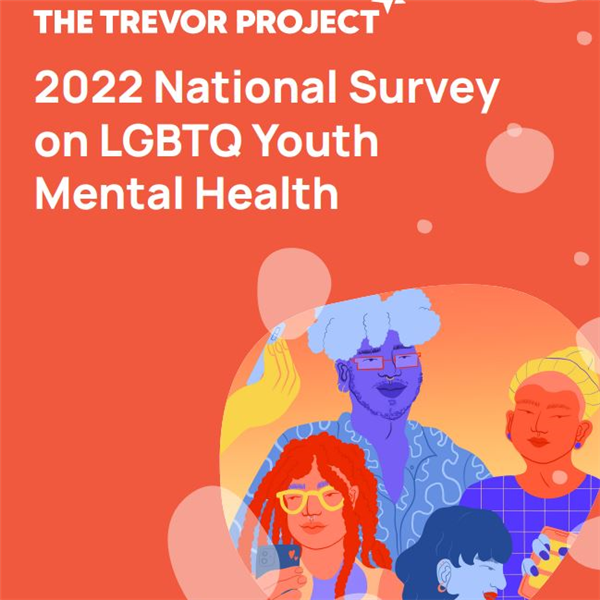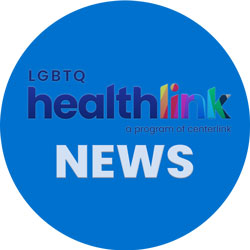Youth Mental Health Concerns Rise – #LGBTWellness Roundup

LGBT HealthLink, 6/14/2022
You can LISTEN to our Weekly Wellness Roundup podcast! Subscribe here: https://bit.ly/LGBTWellnessPodcast or where ever you podcast.
Youth Mental Health Concerns Rising
The Trevor Project published its annual report on LGBT youth mental health, based on a survey of almost 34,000 youth aged 13 to 24. Among the many findings: nearly half (45%) of LGBT youth had “seriously contemplated” suicide within the past year, and 60% of LGBT youth who wanted mental health care in the past year had been unable to access it. Additionally, 73% of LGBT youth reported symptoms of anxiety and 58% reported symptoms of depression; these issues were even higher for gender minority youth than they were for cisgender sexual minority youth. Anxiety, depression, and contemplating suicide had all trended up slightly from 2020 to 2022, and more than 90% of gender minority youth expressed concern over state and local laws limiting gender-affirming care and access to gender-based facilities.
If you or an LGBT youth you know needs help, contact the Trevor Project.
Few Transgender Children “Retransition”
Pediatrics published a study of over three hundred transgender children, and found that only 7.3% “retransitioned” after initially deciding to live as transgender; some of these youth ended up identifying as nonbinary, and only a few percent retransitioned to their sex assigned at birth. The study concludes that while understanding retransitioning is important for providers, families, and transgender youth themselves, that the occurance is relatively rare. The New York Times also reported on the study and noted its importance at a time in which many states are moving to limit gender-affirming care for transgender youth.
States Rally Against Blood Ban
WBUR reported that physicians are rallying the U.S. Food and Drug Administration (FDA) to lift the rule that sexual minority men must wait 90 days from their most recent sexual encounter before being able to donate blood, a rule that is itself a relaxed version of the lifetime ban that was in place before. WBUR interviewed the North Carolina Secretary of Health and Human Services, whose letter to the FDA has been joined by 10 other states. The initial lifetime ban came about in the earlier days of the HIV crisis, but critics call it discriminatory, as it only applies to sexual minority men. (You can hear the full interview by clicking on the red “play” button at the top of the news story.)
Evaluating Training for Med Students & Residents
Transgender Health published a study reviewing evidence of LGBT health education for medical students and residents, and found overall high levels of student satisfaction with these topics, although more time especially on transgender health was needed. The study also found that more interactive experiences were needed to show attitude changes among the future physicians. The researchers also found a lack of information on the actual outcome on LGBT health resulting from their providers having (or not having) training, which could be key to improving this education and pressing for more time dedicated to the subject in med school.
Trans Youth with Autism Face Challenges
Prism Reports shared some of the unique challenges facing autistic transgender youth. Among them was included the ableist view that neurodivergent youth have decreased understanding of their own identity and ability to determine their own course of care. Transgender people who are clinically diagnosed with autism can receive social & medical benefits, however, denial of agency by some providers and the general public can be especially difficult for folx who are also transgender. The issue is of growing importance as transgender people are more likely to be neurodivergent compared to the general population, although research still does not give a clear reason as to why.
20 States Now Mandate Fertility Coverage
GLAD celebrated the passage of a fertility bill in Maine that will require health insurers to cover various types of fertility services in the state, bringing the total number of states in which this type of care is required to only 20 nationwide. While not LGBT-specific, GLAD (an organization that advances LGBT rights) worked on passing the law given that LGBT couples are more likely than others to need this type of service.




